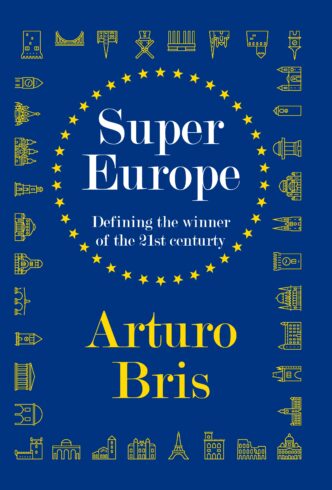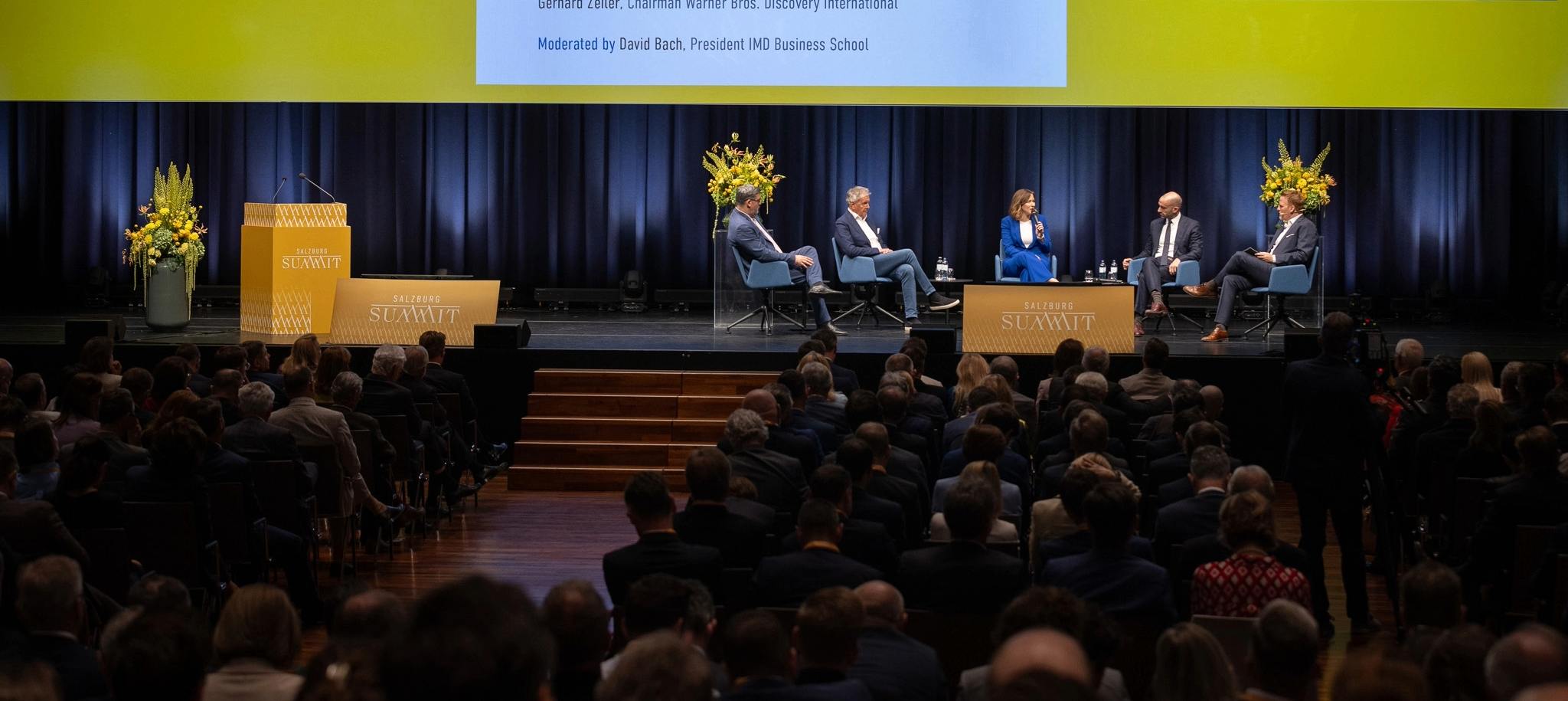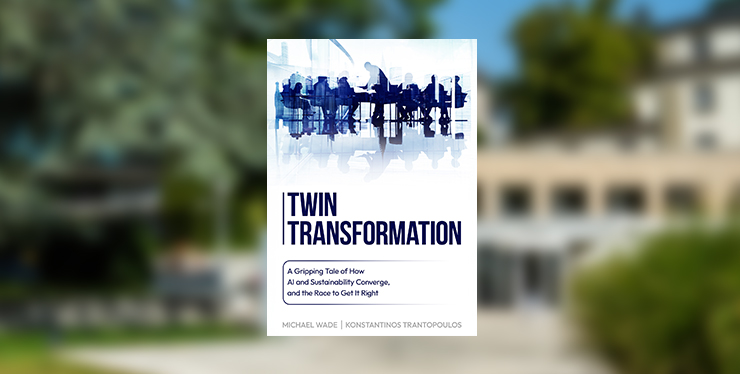The Right Place
Enormously ambitious, wide-ranging and filled with insights. A marvellous and
impressive book that makes you re-think how and why businesses thrive (and fail).
There is no silver bullet for competitiveness. Many books promise quick fixes, but
the wisdom in this new book by Arturo Bris is taking an ecosystem approach. This
is the holistic roadmap emerging markets need to catch the next waves of productivity
and globalization.
Arturo Bris is the superstar of country competitiveness. Over the years we have
enjoyed his annual reports and rankings on the competetiveness of nations around
the globe. In this seminal book he shows us why it matters for business. A warm
recommendation to anyone interested in decision-making beyond the state and
survival strategies of companies.
Why do similar firms succeed in one country but fail in another, irrespective of their strategic choices?
Competition and macroeconomics expert, Prof. Arturo Bris, believes that a country’s economic success and national competitiveness is not unlike a cycling race. If you want to ride fast, you need three things: a good bike, to be in good shape, and a smooth and fast road. You might say the business is the bicycle, the business leader is the cyclist, and the road is the government and the external environment. The responsibility of a government is to design and build the best possible road. And it turns out that when the road is good, good cyclists suddenly appear and want to race on it.
Start your IMD journey
Explore 80+ Executive Education programs to help you progress your career.
In his new book, The Right Place, Arturo Bris provides an analysis of countries’ competitive performance based on 30 years advising governments and institutions around the world on this topic. The typical mistakes that countries make are highlighted, while the pillars necessary to build a truly competitive economy are revealed to provide a roadmap for government organisations to follow.
Bris suggests potential initiatives that governments can implement to help the private sector create jobs, support small businesses, nurture innovation, attract talent, and other steps to help make their countries more prosperous. He draws on fascinating real-life case studies, from the rebranding of Thailand and Israel’s move to become a start-up hub, to Norway’s gender equality efforts and Bhutan measuring itself on Gross National Happiness. The book provides an illuminating read for politicians, government institutions, and students of macroeconomics, while giving invaluable insights for business leaders to give themselves the best possible chance of success in their macroeconomic environment.
IMD business school is an independent academic institute with close ties to business and a strong focus on impact. Through our world-leading Executive Education, Master of Business Administration (MBA), Executive MBA, and Solutions for Organizations we help leaders and policy-makers navigate complexity and change. Here at IMD, you can develop your strategic thinking skills by learning alongside senior leaders from around the world – set against the inspiring backdrop of the Swiss Alps.
Research Information & Knowledge Hub for additional information on IMD publications

You can also buy the book on Barnes & Nobles, Book Depository, Orell Füssli and Routledge.

Arturo Bris is Professor of Finance at IMD. Since January 2014 he is also leading the world-renowned IMD World Competitiveness Center.
At IMD he directed the Advanced Strategic Management program from 2009-2014. He has…

Arturo Bris is Professor of Finance at IMD. Since January 2014 he is also leading the world-renowned IMD World Competitiveness Center.
At IMD he directed the Advanced Strategic Management program from 2009-2014. He has directed programs for senior executives in several industries and continents. Prior to joining IMD, Professor Bris was the Robert B & Candice J. Haas Associate Professor of Corporate Finance at the Yale School of Management (USA). A Research Associate of the European Corporate Governance Institute, and a member of the Yale International Institute for Corporate Governance, he has worked extensively on issues of Corporate Governance, Financial Regulation, and International Valuation.
His research and consulting activities focus on the international aspects of financial regulation, and in particular on the effects of bankruptcy, short sales, insider trading, and merger laws. Arturo Bris has also researched and lectured on the effects of the Euro on the corporate sector, as well as on the valuation impact of corporate governance changes.
Arturo is passionate about global competitiveness, financial development and macroeconomics. His latest research identifies the relationship between income inequality, social mobility and competitiveness. He is also developing a competitiveness-based investment portfolio that track the best and worst economies.
His work has been published in the Journal of Finance, the Journal of Financial Economics, the Review of Financial Studies, the Journal of Legal Studies, and the Journal of Business, among others. His latest book, Blockchange! provides insights on how to survive the crypto economy.
Professor Bris taught Corporate Finance and Investment Banking at Yale from 1998 to 2005, where he received the Best Teacher Award twice. His consulting experience includes companies in both the US and Europe.
He is the President of the Board of Trustees of the IMD Pension Foundation, and a member of the Supervisory Board of the International School of Lausanne. He is a frequent speaker in international conferences, and appears regularly on international media outlets.
Professor Arturo Bris ranks among the top one hundred most-read finance academics in the world. He graduated in Law and Economics from Universidad Autónoma de Madrid, and received an MSc from CEMFI (Foundation of the Bank of Spain). He holds a PhD in Management from INSEAD. He enjoys reading, road- and mountain-biking, and playing bass guitar.
For further information, an interview with Arturo Bris, a guest article or a review copy of The Right Place: How National Competitiveness Makes or Breaks Companies, please send us a message
Moving the cogs in a country’s productivity system requires the right kind of talent. Let’s consider them the oil. The usefulness of this oil depends on all manner of inputs, such as the quality of the education system and the attractiveness of th...

This book is a vindication of Europe. It challenges the view of Europe as a tired, overregulated continent, arguing instead that Europe has emerged from decades of crisis—financial turmoil, Brexit, COVID-19, war in Ukraine—as a resilient, reformed...
When policymakers start using internet slang to describe the economy, it is a sign something is not right. The word neijuan was once used by Chinese students to depict burnout from seemingly pointless competition. Now it is showing up in policy la...

At the Salzburg Summit, leaders called for a more competitive, confident Europe, backed by strategic autonomy, defense readiness, and regulatory reform.
South Korea has long been recognized for its advanced manufacturing industry and high research and development (R&D) investment, but it now faces complex issues that threaten its competitiveness. This is evident in the 2025 IMD World Competitivene...

Corporate leaders must stop being passive spectators and actively shape geopolitical outcomes to drive global competitiveness and collaboration.

The IMD World Competitiveness Ranking (WCR) is a renowned tool for assessing the competitiveness of economies worldwide. This year, IMD’s World Competitiveness Center (WCC) has expanded its scope to include Kenya, Namibia, and Oman. This year's ra...

L’Oréal Sustainability lead Kiri Trier shares how she’s shifting customer behavior to make recycling, refilling, and waste reduction a bathroom habit.

Have you ever wondered why AI and sustainability seem so promising, yet so often fail to take off inside traditional companies? Or why, despite their potential synergy, AI and sustainability are so rarely pursued together? Too often, companies tre...
IMD produces a yearly Smart City Index offering a balanced focus on economic and technological aspects of smart cities on the one hand, and “humane dimensions” of smart cities (quality of life, environment, and inclusiveness) on the other. In this...
IMD World Competitiveness Center Report, September 2025
Research Information & Knowledge Hub for additional information on IMD publications
Research Information & Knowledge Hub for additional information on IMD publications
Research Information & Knowledge Hub for additional information on IMD publications
Research Information & Knowledge Hub for additional information on IMD publications
in Maeil Business Newspaper 16 July 2025
Research Information & Knowledge Hub for additional information on IMD publications
Research Information & Knowledge Hub for additional information on IMD publications
Published by International Institute for Management Development ©2025
Research Information & Knowledge Hub for additional information on IMD publications
in I by IMD
Research Information & Knowledge Hub for additional information on IMD publications
Research Information & Knowledge Hub for additional information on IMD publications
IMD World Competitiveness Center Report, 8 April 2025
Research Information & Knowledge Hub for additional information on IMD publications


